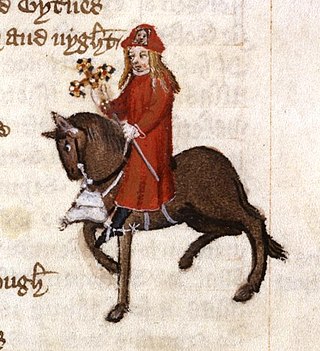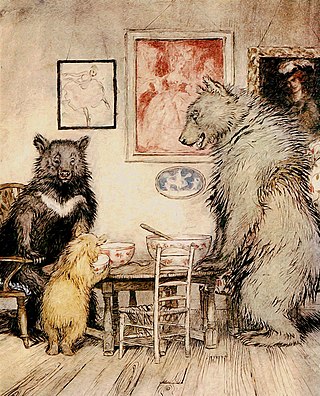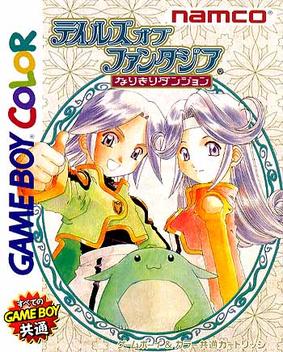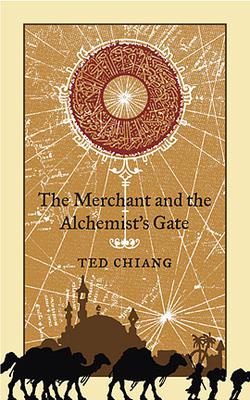
In Greek mythology, Echo was an Oread who resided on Mount Cithaeron. Zeus loved consorting with beautiful nymphs and often visited them on Earth. Eventually, Zeus's wife, Hera, became suspicious, and came from Mount Olympus in an attempt to catch Zeus with the nymphs. Echo, by trying to protect Zeus, endured Hera's wrath, and Hera made her only able to speak the last words spoken to her. So when Echo met Narcissus and fell in love with him, she was unable to tell him how she felt and was forced to watch him as he fell in love with himself.

Noggin the Nog is a fictional character appearing in a BBC Television animated series and a series of illustrated books, created by Oliver Postgate and Peter Firmin. The television series is considered a cult classic from the golden age of British children's television. Noggin himself is the simple, kind and unassuming "King of the Northmen" in a roughly Viking Age setting, with various fantastic elements such as dragons, flying machines and talking birds.

"The Tell-Tale Heart" is a short story by American writer Edgar Allan Poe, first published in 1843. It is told by an unnamed narrator who endeavors to convince the reader of the narrator's sanity while simultaneously describing a murder the narrator committed. The victim was an old man with a filmy pale blue "vulture-eye", as the narrator calls it. The narrator emphasizes the careful calculation of the murder, attempting the perfect crime, complete with dismembering the body in the bathtub and hiding it under the floorboards. Ultimately, the narrator's actions result in hearing a thumping sound, which the narrator interprets as the dead man's beating heart.

"The Miller's Tale" is the second of Geoffrey Chaucer's Canterbury Tales (1380s–1390s), told by the drunken miller Robin to "quite" "The Knight's Tale". The Miller's Prologue is the first "quite" that occurs in the tales.

"The Pardoner's Tale" is one of The Canterbury Tales by Geoffrey Chaucer. In the order of the Tales, it comes after The Physician's Tale and before The Shipman's Tale; it is prompted by the Host's desire to hear something positive after the physician's depressing tale. The Pardoner initiates his Prologue—briefly accounting his methods of swindling people—and then proceeds to tell a moral tale.

Belshazzar's feast, or the story of the writing on the wall, chapter 5 in the Book of Daniel, tells how Belshazzar holds a great feast and drinks from the vessels that had been looted in the destruction of the First Temple. A hand appears and writes on the wall. The terrified Belshazzar calls for his wise men, but they are unable to read the writing. The queen advises him to send for Daniel, renowned for his wisdom. Daniel reminds Belshazzar that his father Nebuchadnezzar, when he became arrogant, was thrown down until he learned that God has sovereignty over the kingdom of men. Belshazzar had likewise blasphemed God, and so God sent this hand. Daniel then reads the message and interprets it: God has numbered Belshazzar's days, he has been weighed and found wanting, and his kingdom will be given to the Medes and the Persians.
That very night Belshazzar, the Chaldean [Babylonian] king, was killed. And Darius the Mede received the kingdom […]

"Goldilocks and the Three Bears" is a 19th-century English fairy tale of which three versions exist. The original version of the tale tells of an impudent old woman who enters the forest home of three anthropomorphic bachelor bears while they are away. She eats some of their porridge, sits down on one of their chairs, breaks it, and sleeps in one of their beds. When the bears return and discover her, she wakes up, jumps out of the window, and is never seen again. The second version replaces the old woman with a young, naive, blonde-haired girl named Goldilocks, and the third and by far best-known version replaces the bachelor trio with a family of three. The story has elicited various interpretations and has been adapted to film, opera, and other media. "Goldilocks and the Three Bears" is one of the most popular fairy tales in the English language.

Tales of Phantasia: Narikiri Dungeon is a role-playing video game for the Game Boy Color released by Namco on November 10, 2000, selling 136,000 copies. Tales of Phantasia: Narikiri Dungeon's characteristic genre name is Dungeon RPG. It is the first sequel in the Tales series, which normally does not have connected storylines. The story begins 205 years after the beginning of Tales of Phantasia.

Jonah: A VeggieTales Movie is a 2002 American animated Christian musical comedy adventure film produced by Big Idea Productions and released by Artisan Entertainment through its F·H·E Pictures label. Written and directed by Phil Vischer and Mike Nawrocki in their feature directorial debuts, it is the first of the two theatrical feature films in the VeggieTales series, before The Pirates Who Don't Do Anything: A VeggieTales Movie (2008).

Shark Tale is a 2004 video game based on the film of the same name that was released on Game Boy Advance, GameCube, Microsoft Windows, PlayStation 2 and Xbox. The Game Boy Advance version was also released on a Twin Pack cartridge bundled with Shrek 2 in 2005. The game received mixed reviews from critics.

Tellme Networks, Inc. was an American company founded in 1999 by Mike McCue and Angus Davis, which specialized in telephone-based applications. Its headquarters were in Mountain View, California.

A Dreamer's Tales is the fourth book by Irish fantasy writer Lord Dunsany, considered a major influence on the work of J. R. R. Tolkien, H. P. Lovecraft, Ursula K. Le Guin, and others. Like most of Dunsany's early books, A Dreamer's Tales is a collection of fantasy short stories.
Sun, Moon, and Talia is an Italian literary fairy tale written by Giambattista Basile and published posthumously in the last volume of his 1634-36 work, the Pentamerone. Charles Perrault retold this fairy tale in 1697 as Sleeping Beauty, as did the Brothers Grimm in 1812 as Little Briar Rose.

"The Merchant and the Alchemist's Gate" is a fantasy novelette by American writer Ted Chiang, originally published in 2007 by Subterranean Press and reprinted in the September 2007 issue of Fantasy & Science Fiction. In 2019, the novelette was included in the collection of short stories Exhalation: Stories.

The Decameron, subtitled Prince Galehaut and sometimes nicknamed l'Umana commedia, is a collection of short stories by the 14th-century Italian author Giovanni Boccaccio (1313–1375). The book is structured as a frame story containing 100 tales told by a group of seven young women and three young men; they shelter in a secluded villa just outside Florence in order to escape the Black Death, which was afflicting the city. Boccaccio probably conceived of the Decameron after the epidemic of 1348, and completed it by 1353. The various tales of love in The Decameron range from the erotic to the tragic. Tales of wit, practical jokes, and life lessons contribute to the mosaic. In addition to its literary value and widespread influence, it provides a document of life at the time. Written in the vernacular of the Florentine language, it is considered a masterpiece of early Italian prose.
"Red-Handed" is the 15th episode of the American fairy tale/drama television series Once Upon a Time, which aired in the United States on ABC on March 11, 2012.
"Message from space" is a type of "first contact" theme in science fiction. Stories of this type involve receiving an interstellar message which reveals the existence of other intelligent life in the universe.

Pirates of the Caribbean: Dead Men Tell No Tales is a 2017 American swashbuckler fantasy film directed by Joachim Rønning and Espen Sandberg, produced by Jerry Bruckheimer, and written by Jeff Nathanson, with story credit given to both Nathanson and executive producer Terry Rossio. The fifth installment of the Pirates of the Caribbean film series, it follows At World's End (2007) and On Stranger Tides (2011) as a stand-alone sequel. The film stars Johnny Depp, Javier Bardem, Geoffrey Rush, Brenton Thwaites, Kaya Scodelario, and Kevin McNally. The story follows Captain Jack Sparrow (Depp) as he searches for the Trident of Poseidon to defeat Armando Salazar (Bardem), who is determined to kill every pirate at sea and take revenge on Sparrow for imprisoning him and his crew of ghosts in the Devil's Triangle. Jack is joined by Hector Barbossa (Rush), young sailor Henry Turner (Thwaites), young astronomer Carina Smyth (Scodelario), Jack's crewmen including first mate Joshamee Gibbs (McNally) and Scrum to defeat Salazar's ghostly crew.

Nila, also spelled as Neela, is a character in the Hindu epic Ramayana. He is a vanara chieftain in the army of Rama, the prince of Ayodhya and avatar of the god Vishnu. He is the commander-in-chief of the vanara army under the vanara king Sugriva, and is described as leading the army in Rama's battle against the rakshasa king Ravana of Lanka and as killing many rakshasas.















